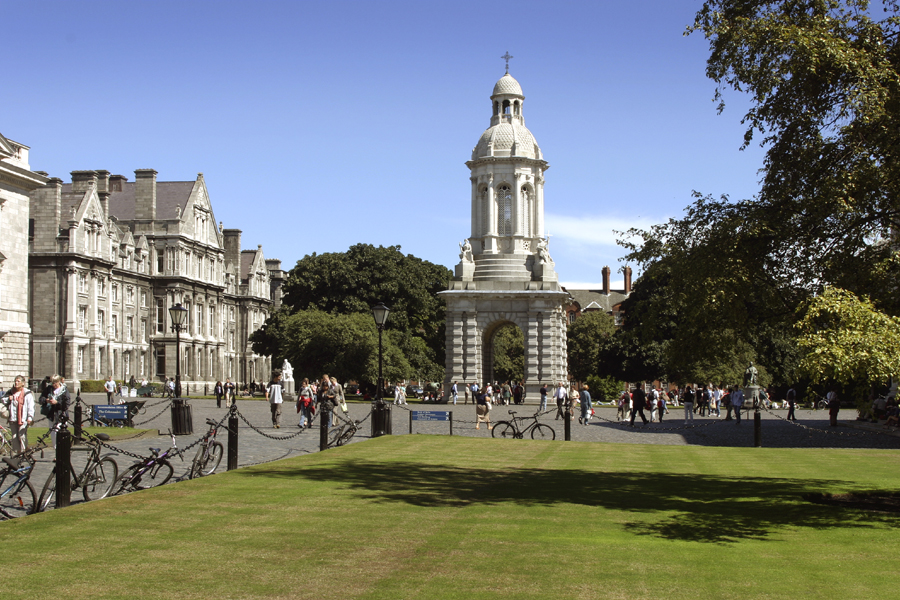Providing students with a formal qualification, the Trinity Centre for People with Intellectual Disabilities have launched a new Certificate in Arts, Science and Inclusive Applied Practice, which will be worth a level five on the National Framework of Qualifications (NFQ).
The accreditation came after approval by University Council and means that, compared to previous years, students will now receive a formal qualification following graduation. The new course accreditation was announced today as part of the launch of the business partners programme in College Green.
The two-year course, which accepted students for the first time this year, is run by the School of Education. It will see students learn a broad range of skills from across disciplines, including science and maths, culture and advocacy, fine arts, and independent living skills. The course, according to a release on the centre’s website, hopes to prepare graduates to compete for jobs and admission to further education “on an equal level with other graduates”, and encourage the inclusion of people with intellectual disabilities as “full participants in Irish society”.
It replaces the former Certificate in Contemporary Living (CCL), a two-year long full-time course that aimed to “introduce students with intellectual disabilities to college life and to enable them to develop life skills”, but was not aligned to the NFQ. There have been over 120 graduates of the CCL since it was approved by University Council in 2006.
The event today launched a co-operative enterprise between the Trinity Centre for People with Intellectual Disabilities and various Irish businesses, who will provide support and work opportunities for students with intellectual disabilities. It was attended by Bank of Ireland and CPL, one of Ireland’s largest recruiting firms.
The business partners programme will see a number of Irish companies commit to providing services such as work placements, mentoring, coaching, giving presentations and other supports to students with intellectual disabilities.
In a press release, Chief Executive of Bank of Ireland, Richie Boucher, said that his organisation’s involvement with the Trinity Centre for People with Intellectual Disabilities had been “both hugely positive for the Bank and rewarding for our colleagues”.
The Trinity Centre for People with Intellectual Disabilities was found in 2004 as the National Institute of Intellectual Disability, and is located within the School of Education. The centre aims to support adults with intellectual disabilities through Trinity’s own education programme.
The two-year course, which accepted students for the first time this year, is run by the School of Education. It sees students learn a broad range of skills from across disciplines, including science and maths, culture and advocacy, fine arts, and independent living skills. The course, according to a release on the centre’s website, hopes to prepare graduates to compete for jobs and admission to further education “on an equal level with other graduates”, and encourage the inclusion of people with intellectual disabilities as “full participants in Irish society.”
A large part of that positive experience, Boucher said, comes from the contribution that the company’s involvement with the centre has made in terms of fostering “openness, acceptance and inclusiveness” in the workplace.
Companies involved in the programme range from prominent law firms such as A&L Goodbody, to Google, and state companies such as An Post.
Chief Executive of CPL Presidne of IBEC, Anne Heraty, said in a press release that the programme would “facilitate the formation of many productive partnerships”, thereby “promoting real inclusion in the workplace”.







